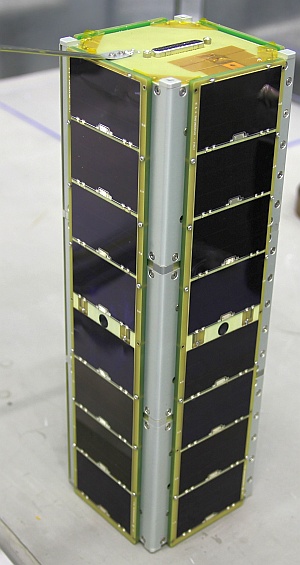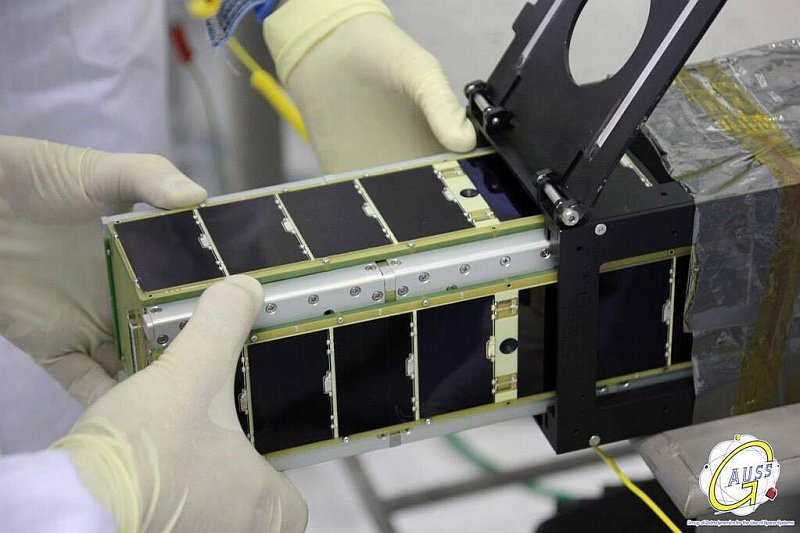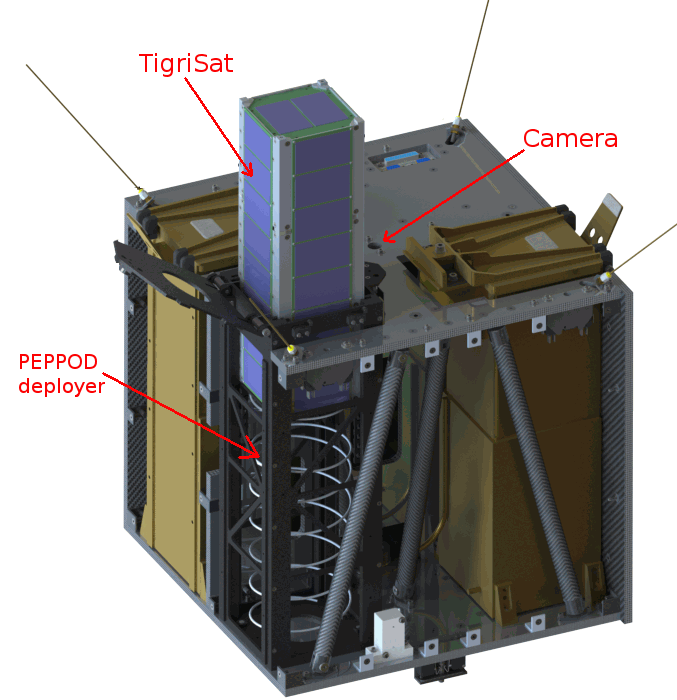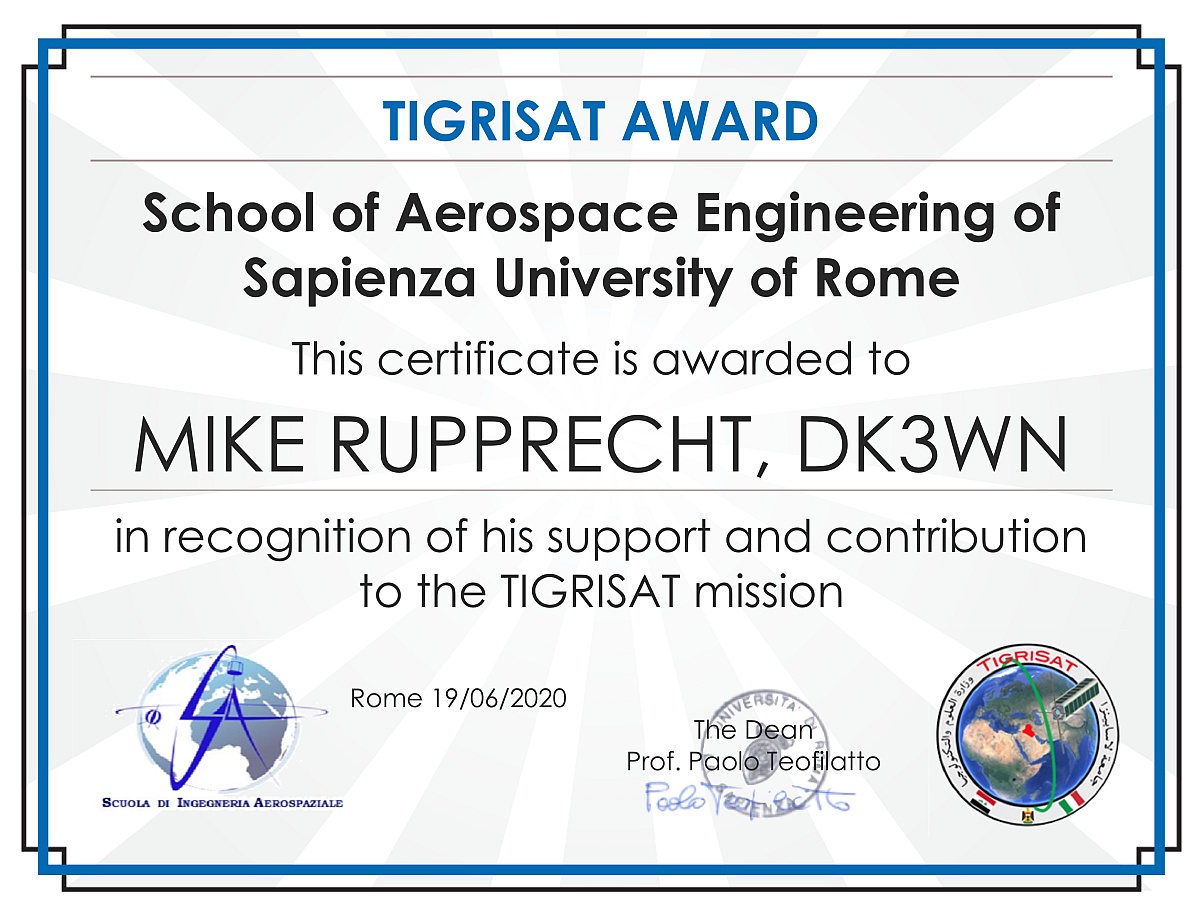
A three-unit CubeSat, TigriSat, is the first satellite to be launched for Iraq. Built for the country’s Ministry of Science and Technology by Iraqi students working at the La Sapienza University in Rome, TigriSat will be used to monitor dust storms in Iraq. It weighs 4 Kg with 10*10*30 cm size. Unisat-6 released in orbit four Cubesats on the 20 June 2014 at 2107 UTC – 25 hours and 38 minutes after the separation from the Dnepr Launch Vehicle. This timing was requested in order to comply with the specifications of the launcher and to make the release just a few minutes before being visible from Rome. Those cubesat satellites are 2U ANTELSAT, AeroCube-6, 3U LEMUR-1 and 3U TigriSat.
NASA-Catalog: 40043
Downlink
435.000 MHz FM 9k6 FSK AX.25
Call
HNATIG
Status
ACTIVE
Orbital Parameter
NORAD 40043 COSPAR designator 2014-033-AK Inclination 97.971 RA of A. Node 131.017 Eccentricity 0.0062706 Argument of Perigee 350.460 Revs per day 14.72239202 Period 1h 37m 48s (97.80 min) Semi-major axis 7 032 km Perigee x Apogee 610 x 698 km BStar (drag term) 0.000115910 1/ER Mean anomaly 9.542
Telemetry
from HNATIG to CQ (UI, payload: 22 byte) 000 > 00 86 A2 40 40 40 40 60 90 9C 82 A8 92 8E E1 03 F0 54 49 47 020 > 52 49 53 41 54 20 41 42 41 43 55 53 20 42 45 41 43 4F 4E from HNATIG to CQ (UI, payload: 64 byte) 000 > 00 86 A2 40 40 40 40 60 90 9C 82 A8 92 8E E1 03 F0 13 00 00 020 > 00 00 00 00 00 FF 00 01 00 01 00 00 00 01 01 A0 00 FF F0 00 040 > 00 00 00 00 00 00 00 00 00 00 00 00 00 00 00 00 00 00 00 00 060 > 20 00 00 00 9F B7 D3 00 00 00 00 00 00 00 00 00 00 00 00 00 080 > 00
21.06.2014 10:00 UTC first telemetry (DK3WN)
Links und weitere Informationen


Launch
The liftoff of the 20th Dnepr rocket, took place as scheduled on June 19, 2014, at 19:11:11 UTC from an underground silo facility No. 370/13 in the Dombarosvsky ICBM deployment area in southern Russia. The rocket carried the KazEOSat-2 (DZZ-MRES) remote-sensing satellite for the imaging of the Earth surface, which was built by the European consortium Airbus Defense and Space for the government of Kazakhstan and a cluster of 36 secondary payloads for customers from 17 countries, including Deimos-2, Hodoyoshi-3, Hodoyoshi-4, BugSat-1, SaudiSat-4, AprizeSat-9, AprizeSat-10, UniSat-6, Tigrisat, AeroCube 6, ANTELSAT, Lemur-1, BRITE-CA 1, BRITE-CA 2, NanosatC-Br1, Duchifat-1, Perseus-M1, Perseus-M2, QB50P1, QB50P, Tablesat-Avrora, 11 satellites Flock-1c, POPSAT-HIP 1, PACE, PolyITAN, DTUSat-2.
